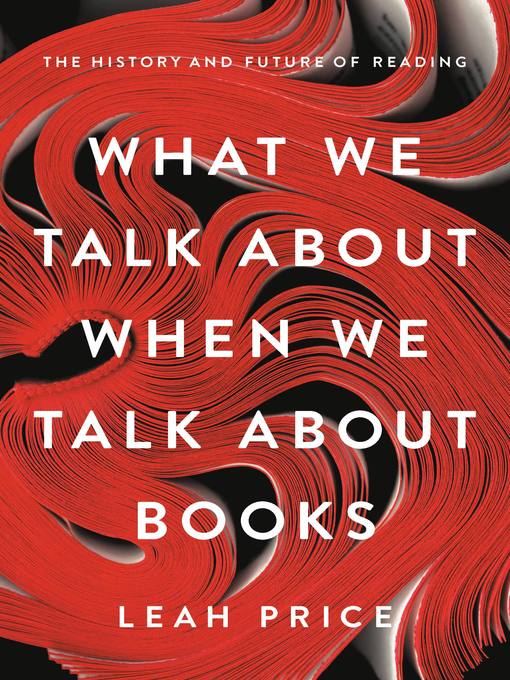
What We Talk About When We Talk About Books
The History and Future of Reading
کتاب های مرتبط
- اطلاعات
- نقد و بررسی
- دیدگاه کاربران
نقد و بررسی

June 17, 2019
Price (How to Do Things with Books in Victorian Britain), a Rutgers English professor and the founding director of the Rutgers Book Initiative, combines a lighthearted romp through literary history with a serious intent: to argue that the rise of e-texts is not the radical change often claimed. In fact, Price argues, change is the norm in print history: the world moved from papyrus to parchment to paper, and from scrolls to codices to books, while books themselves have changed from giant medieval compilations of parchment chained in place, to early-20th-century pocketbooks printed on onionskin. Price notes that with the advent of e-texts, physical books have a newly elevated status based in nostalgia for a pre-electronic era—and are increasingly employed as therapy, their purpose displaced from the joy of reading to self-improvement. Price’s factual tidbits are entertaining: for example, the first vegetarian cookbook was, ironically, bound with and printed on animal skins. However, her penchant for labored analogies—“Print is to digital as Madonna is to whore”—will strain even the most forgiving reader’s patience. Nevertheless, Price provides welcome comfort that the beloved book is in good shape, regardless of the form it ultimately takes.

June 15, 2019
Books are not dead. That's the good news in this set of bookish essays. It wasn't long ago, writes Rutgers Book Initiative founding director Price (How To Do Things With Books in Victorian Britain, 2012, etc.), that writers such as Sven Birkerts and Robert Coover were remarking, and sometimes lamenting, the supposed decline of the book in favor of other technologies--the computer, the e-reader, etc. In fact, reading physical books is on the rise, and in December 2018, holiday shoppers found several popular titles on back order for "that most old-fashioned of crises: a paper shortage." The widespread availability of digital devices doesn't seem to have put much of a dent in the market for physical books, though new technologies have certainly affected reading in the past--most notably, Price archly observes, TV. What has really cut into reading time, she adds, is the in-between time we used to devote to reading books and newspapers, the time spent on bus-stop benches or commuter trains, time now so often given to navigating the many iterations of social media. Books as objects seem safe, then, though mysteries still surround them: Those data crunchers who use electronic tools to see what books people are looking at most still can't answer why we're looking at them. As Price writes, in a nice turn, "no matter how many keystrokes you track and blinks you time, others' reading remains as hard to peer into as others' hearts." The essays suggest more than form a single coherent argument about the book today, but Price's ideas that books are a communal thing and that reading them, in at least one sense, is a profoundly social act are pleasing even if libraries are now different from our childhood memories and if those books come in many forms besides between covers. Readers who enjoy books about books will find much to like here.
COPYRIGHT(2019) Kirkus Reviews, ALL RIGHTS RESERVED.

July 26, 2019
Price (Harvard Univ.; Unpacking My Library) takes on the cultural mythology surrounding books and reading, and skewers the notion that either is on its way out. Debates today often concern format--print or electronic?--or attention--is our ability to concentrate in jeopardy owing to new technologies? Yet Price demonstrates these questions are well worn. Concepts of books, and how we interact with them, have been in flux and clouded by nostalgia throughout history. The modern, privately owned work is a relatively new concept. Previous media has included huge serial volumes, handbills (mass-produced and short lived), and recently, tablets. Price convincingly contextualizes trends, noting Facebook posts held up against Gutenberg's Bible signal our doom, but those are apples and oranges. Comparing tweets to papal indulgences more accurately reflects reality. Price asks what a book is and does, and what reading is and does--and the answers are not (and never have been) identical. VERDICT This clear-eyed exploration of the attitudes and trends around reading and books will likely provoke lively discussion. Recommended for anyone with an interest in these favorite forms of entertainment.--Audrey Snowden, Milford Town Lib., MA
Copyright 2019 Library Journal, LLC Used with permission.

























دیدگاه کاربران